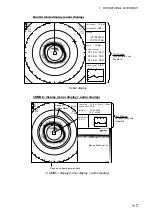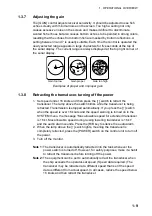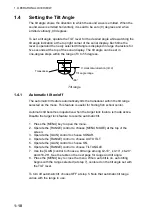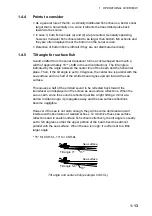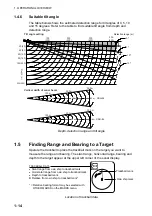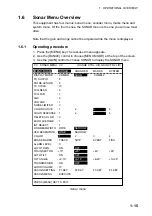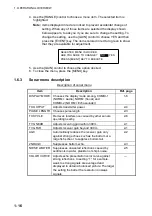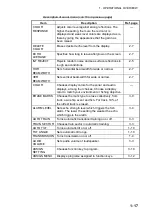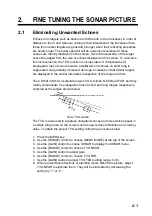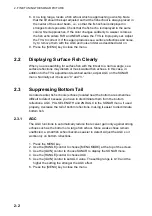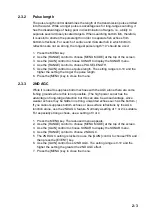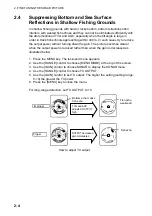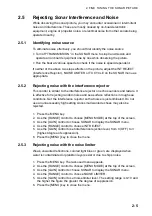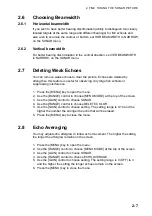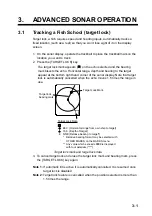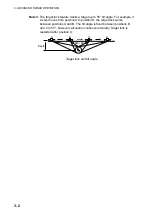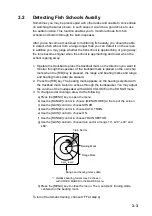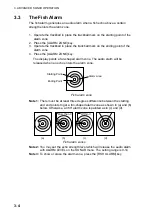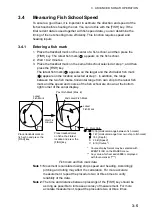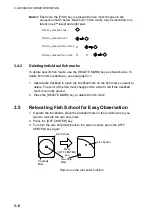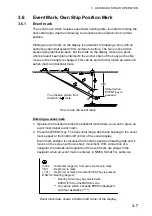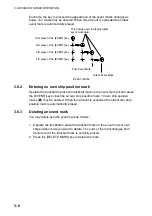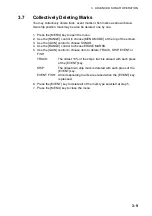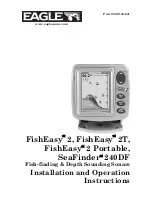
2-3
2.3.2 Pulse
length
The pulse length control determines the length of the transmission pulse emitted
into the water. While a longer pulse is advantageous for long-range sounding, it
has the disadvantage of being poor in discrimination of targets, i.e., ability to
separate several closely located targets. When searching bottom fish, therefore,
it is useful to shorten the pulselength in order to separate fish echoes from
bottom reflections. For search of surface and midwater fish in which bottom
reflections are not so strong, the longest pulse length “10” should be used.
1. Press the MENU key.
2. Use the [RANGE] control to choose [MENU MODE] at the top of the screen.
3. Use the [GAIN] control to choose SONAR to display the SONAR menu.
4. Use the [RANGE] control to choose PULSE LENGTH.
5. Use the [GAIN] control to set pulse length. The setting range is 0-10 and the
higher the setting the longer the pulse length.
6. Press the [MENU] key to close the menu.
2.3.3 2ND
AGC
While it is ideal to suppress bottom echoes with the AGC alone there are some
fishing grounds where this is not possible. (The high power sonar has the
advantage of long-range detection but this can also be a disadvantage, since
weaker echoes may be hidden in strong, unwanted echoes such as the bottom.)
If you cannot suppress bottom echoes or sea surface reflections by the AGC
function alone, use the 2ND AGC feature. Normally a setting of 1 or 2 is suitable.
For especially strong echoes, use a setting of 3 or 4.
1. Press the MENU key. The last-used menu appears.
2. Use the [RANGE] control to choose [MENU MODE] at the top of the screen.
3. Use the [GAIN] control to choose SONAR to display the SONAR menu.
4. Use the [RANGE] control to choose 2ND AGC.
5. The 2ND AGC setting is locked so use the [GAIN] control to choose YES and
then press the [EVENT] key.
6. Use the [GAIN] control to set 2ND AGC. The setting range is 0-10 and the
higher the setting the greater the 2ND AGC effect.
7. Press the [MENU] key to close the menu.

